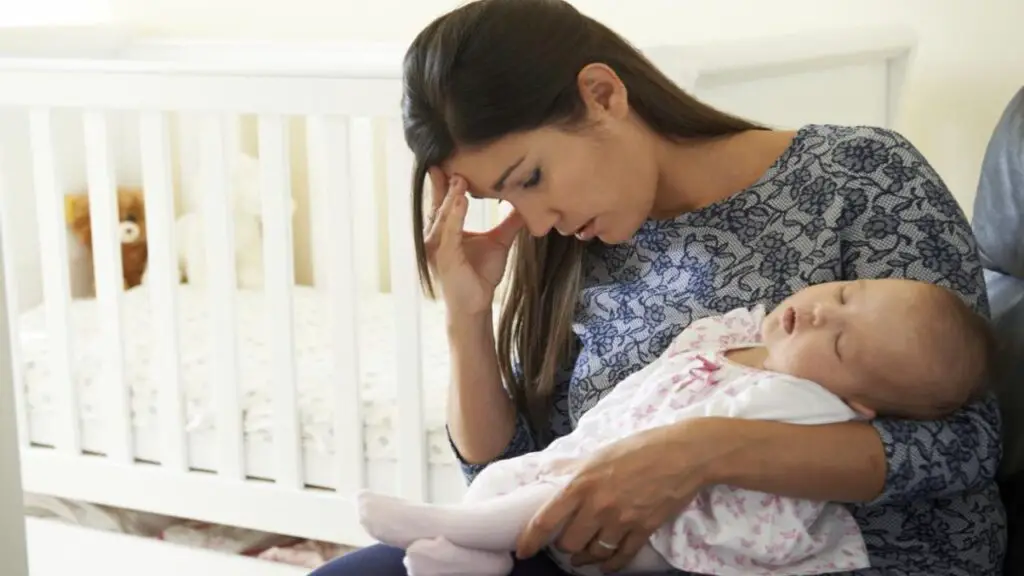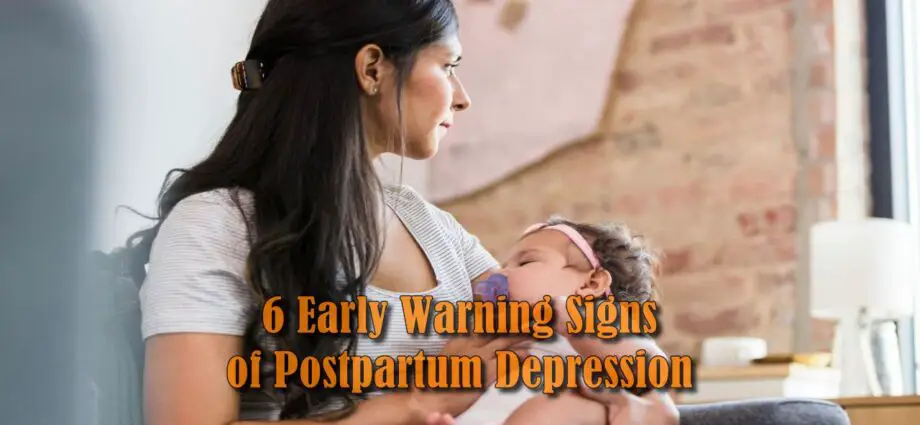Becoming a mom is supposed to be a time of joy, right? Those tiny baby toes. That new baby smell. But for many women, the postpartum period can feel anything but joyful. If you’ve been feeling down, overwhelmed, or unlike yourself, you’re not alone. And it’s crucial to pay attention to what your mind and body are telling you. Could it be postpartum depression? Keep reading to learn about six early warning signs—and what you can do to start feeling like yourself again.
What to Do If You Suffer From Postpartum Depression?
The first step? Recognizing that help is out there. Services like traumatic birth therapy offer specialized support for moms who’ve been through difficult labor or delivery. No one has to go through this alone.

Constant Feelings of Sadness or Hopelessness
We all have days when we feel down. That’s normal. But if the sadness doesn’t go away—or if it feels heavier than usual—it might be more than “baby blues.” Picture this: you’re holding your baby, and instead of joy, there’s an overwhelming wave of emptiness.
For many moms, it feels like being trapped in a fog. Friends and family might say, “But you have a healthy baby!” That’s not the point. Your feelings are valid. If this resonates, it’s time to explore options like Luna Joy mental health services, where professional help is just a click away.
Loss of Interest in Things You Once Loved
Remember those hobbies you swore you’d keep up with after the baby was born? Maybe it was baking, running, or even binging your favorite TV show. Postpartum depression often strips away the ability to enjoy these things.
It’s like someone flipped a switch. Suddenly, the things that used to bring you joy seem pointless. This shift isn’t just “new mom exhaustion.” It’s a red flag. And acknowledging it is an important step toward healing.
Unrelenting Fatigue or Lack of Energy

Let’s be real. Newborns are tiny sleep thieves. Every mom expects to feel tired. But postpartum depression takes that exhaustion to a whole new level.
Imagine feeling bone-tired even after your partner takes over the night feeds. Simple tasks, like getting dressed, feel monumental. This isn’t laziness or poor time management—it’s your body asking for help.
Irritability or Anger That Feels Out of Character
Anger isn’t something we often associate with postpartum depression, but it’s common. Small things—like a crying baby or an offhand comment—might ignite a storm inside.
Here’s an example: a friend of mine once shared how she snapped at her partner for folding the laundry “wrong.” It wasn’t about the laundry. It was her unspoken feelings bubbling to the surface. If you’re finding it hard to control irritability, you’re not alone. It’s another sign that something deeper might be going on.
Trouble Bonding with Your Baby
Every baby book paints this picture of instant, magical bonding. But for moms dealing with postpartum depression, that connection can feel out of reach. You might feel detached or even resentful—and then guilt piles on top of that.
It’s not your fault. Let’s repeat that: it’s not your fault. Postpartum depression impacts how you process emotions, even the ones tied to your little one. Understanding this can make all the difference.
Persistent Feelings of Guilt or Inadequacy

Do you catch yourself thinking, “I’m a terrible mom”? Or feeling like you’re failing, even when you’re doing everything you can? Postpartum depression often amplifies self-doubt.
One mom described it as carrying an invisible scoreboard. Every misstep felt like proof she wasn’t good enough. The truth? You’re doing more than you realize. And acknowledging these thoughts as a symptom—not a reality—can help you start to move forward.
What Can You Do Next?
Recognizing these signs is the first step. The next step? Reaching out. Therapy tailored for postpartum moms can provide the tools you need to cope and heal. Whether it’s traumatic birth therapy or support from services like Luna Joy mental health services, help is available.
Start small. Share your feelings with a trusted friend or partner. Journal about your emotions. And most importantly, be gentle with yourself.
Wrapping Up
Postpartum depression isn’t your fault. It’s not a sign of weakness. And it’s definitely not something you have to endure alone. By recognizing these early warning signs, you’re already taking the first steps toward healing.
Motherhood is hard. But you? You’re stronger than you know.




